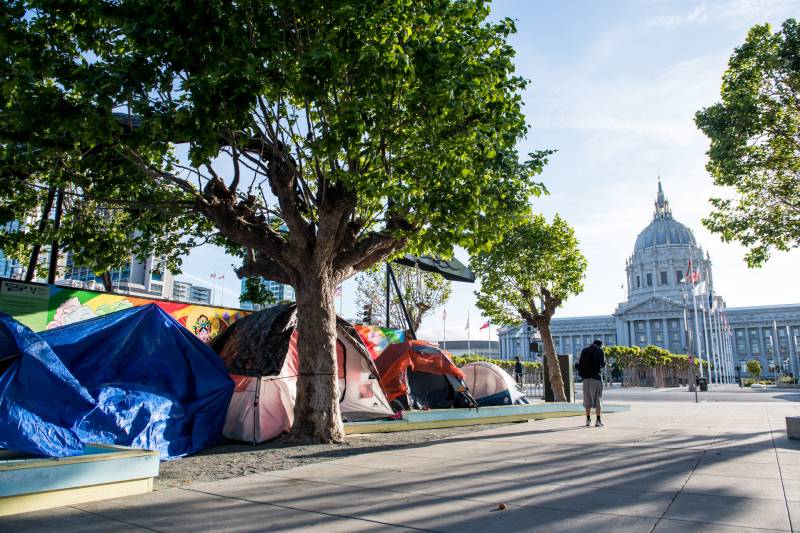San Francisco has $492 million burning a hole in its pocket, and it's about to spend it all on helping the homeless.
That's the amount the city has collected so far in tax dollars from Proposition C, which San Francisco voters approved in 2018. Authored by the San Francisco Coalition on Homelessness, the measure raised taxes on businesses in the city making more than $50 million annually in gross receipts to provide additional funding for homeless services, particularly mental health needs.
Any number of homeless programs may be funded by these dollars, including a new mental health crisis team to respond to non-violent altercations involving unhoused populations, replacing what has traditionally been a law enforcement response.
Programs that offer rental assistance for people on the brink of homelessness, RV sites for those sleeping in vehicles and outdoor "safe sleeping sites" for occupants of tent encampments may also receive much-needed funding.
But although Proposition C passed nearly two years ago, San Francisco hasn't been able to spend a dime of the money collected until just this week.
